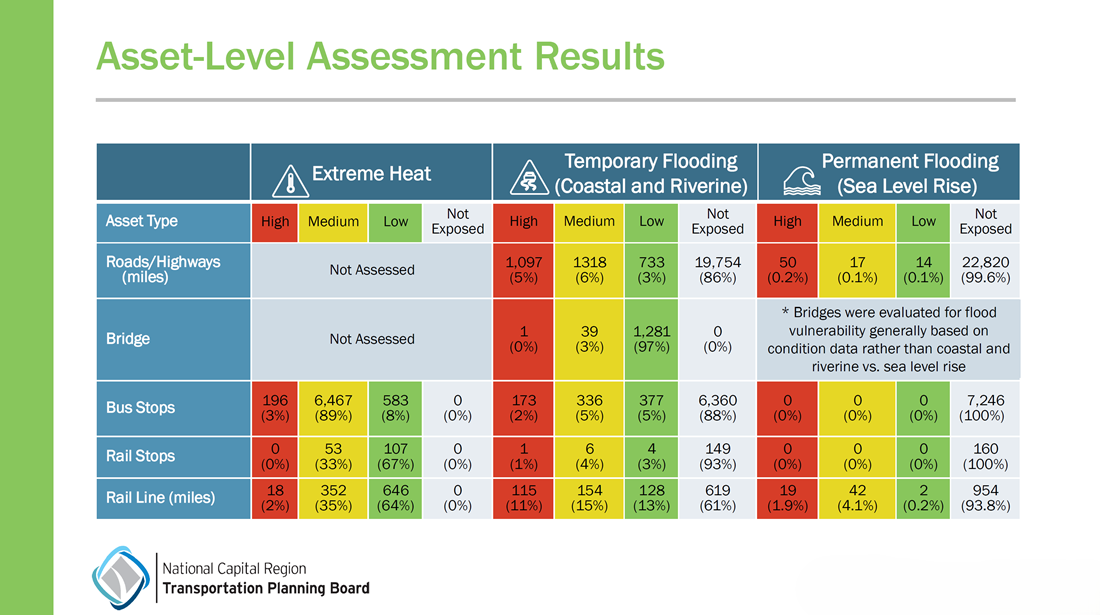Today, at the National Capital Region Transportation Planning Board’s (TPB) June meeting, the board approved the National Capital Region Transportation Resilience Improvement Plan (TRIP) to help improve the preparedness and resilience of the metropolitan Washington region’s transportation system to the impacts of climate change.
The plan builds on extensive work by the TPB and Metropolitan Washington Council of Governments to enhance the region’s climate resilience and positions area governments for federal funding and reduced costs for resilience projects under the Promoting Resilient Operations for Transformative, Efficient, and Cost- Saving Transportation (PROTECT) program, a voluntary program established under the Infrastructure Investment and Jobs Act (IIJA).
"The resiliency issues we'll face in the future due to climate change won't recognize jurisdiction or transit operator boundaries. Working with the TPB to develop a unified regional plan to address the risks our critical transportation infrastructure will confront is essential to maintaining the region's mobility and a high quality of transit service,’ said Virginia Railway Express Program Manager Nick Ruiz, who serves on the TPB Transportation Resiliency Working Group.
The TRIP was developed in coordination with TPB member agencies and serves as a regional resource, including a vulnerability assessment and associated web mapping tool of risks posed by natural hazards on local transportation assets. It also presents a list of 34 priority resilience projects from eight regional agencies and jurisdictions, submitted by TPB members.
“By completing this plan, we now have a better regional picture of which areas, assets, and services are most at risk to select climate hazards, and in response, we can begin identifying priorities for investment in resilience solutions at a regional scale. Also, resilience improvement projects included in the TRIP gain the extra benefit of being eligible for a local match reduction if awarded a PROTECT discretionary grant – a win-win for the region,” said TPB Resiliency Planner Katherine Rainone.

The TPB conducted an asset-level, indicator-based vulnerability assessment to identify transportation assets with the greatest climate hazard risks and inform climate resilience and transportation planning efforts in the region. The Risk-Based Vulnerability Assessment, a required element of the TRIP, found that the region has the greatest number of assets highly vulnerable to temporary flooding (coastal and riverine), followed by extreme heat, and permanent flooding (sea level rise). The results show, among other impacts, 11 percent of rail line and 5 percent of road/highway miles are at high risk from coastal and riverine flooding, while 3 percent of bus stops are at high risk from extreme heat. Furthermore, the location of an asset in an Equity Emphasis Area (EEA) was included in the calculation for vulnerability, and every asset that scored as highly vulnerable is located within an EEA. The results are publicly available to view via this online mapping tool.
TPB’s Transportation Resiliency Working Group and a Resiliency Forum held in October informed the development of the final plan. To support continued transportation resilience work, the TPB will maintain and update the vulnerability assessment and identify additional resilience projects to include in the priority project list on an annual basis. The TPB will also continue to serve as a multi-jurisdictional resource to support regional resilience planning across its member agencies. The TRIP now awaits review and approval from the Federal Highway Administration (FHWA) division office before it will be considered final.